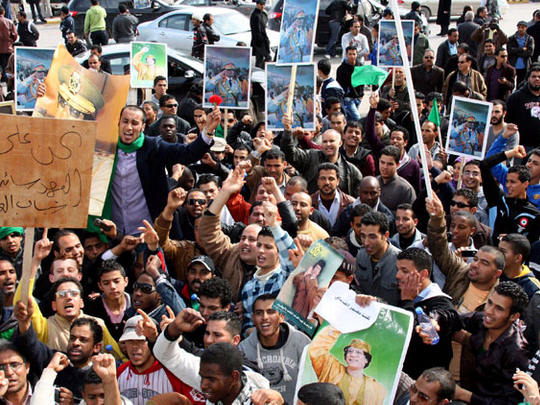
The Arab League stands condemned by its silence. Popular action has rocked the region, re-invigorating its politics and bringing self-respect back to millions of Arabs who have suffered the desperation of living with a sense of deep isolation from their governments and nations. But the Arab League has failed to comment on the biggest political shift within the Arab world since the anti-colonial rise of Arab nationalism in the 1950s.
Almost ten weeks had passed since the eruption of the Tunisian revolution on December 17, when a young man immolated himself to uphold his dignity. Almost five weeks have passed since Tunisian president Zine Al Abidine Bin Ali fled into exile. Almost two weeks have passed since the departure of Hosni Mubarak, who was forced to resign by the daily gatherings of tens of thousands of Egyptians in Tahrir Square.
But the Arab League has been conspicuous by its silence. It has not even condemned the brutal response of some countries to the wave of demonstrations. More than 200 people may have been killed in Libya and this harsh response to the demonstrations has forced worldwide condemnation even from countries that have worked hard in recent years to bring Muammar Gaddafi's government back to international respectability.
In focus: Unrest in the Middle East
Britain described the repression as "unacceptable, counter-productive and wrong." The United States said it had "strong objections to the use of lethal force against peaceful demonstrators", and France, Germany and the European Union have all weighed in with calls for the violence to stop immediately.
But there has been nothing from the Arab League. Indeed, Libya's permanent representative to the Arab League, Abdul Moneim Al Honi, has quit his post to "join the revolution".
The Arab League is wrong to dodge commenting on what is happening on the Arab streets, even if it is new and startling. The outpouring of desire from millions of average Arab citizens for political inclusion and more social and economic freedoms is a new and unexpected challenge to regime that had got stuck after decades of hanging onto power, and the way forward is not clear.
But this lack of clarity should not lead to frightened silence. The Arab League should take the opportunity to celebrate the renewal of Arab politics, and to show that it is on the side of the Arab people.
The Arab League will have to answer to the new governments of the Arab world. It will have to justify its existence, and to date it is not succeeding at all. It will have to prove to the Arab people that it can serve their needs, which is not the way that it has thought for decades. The Arab League has to re-invent itself, otherwise it has to disband.








